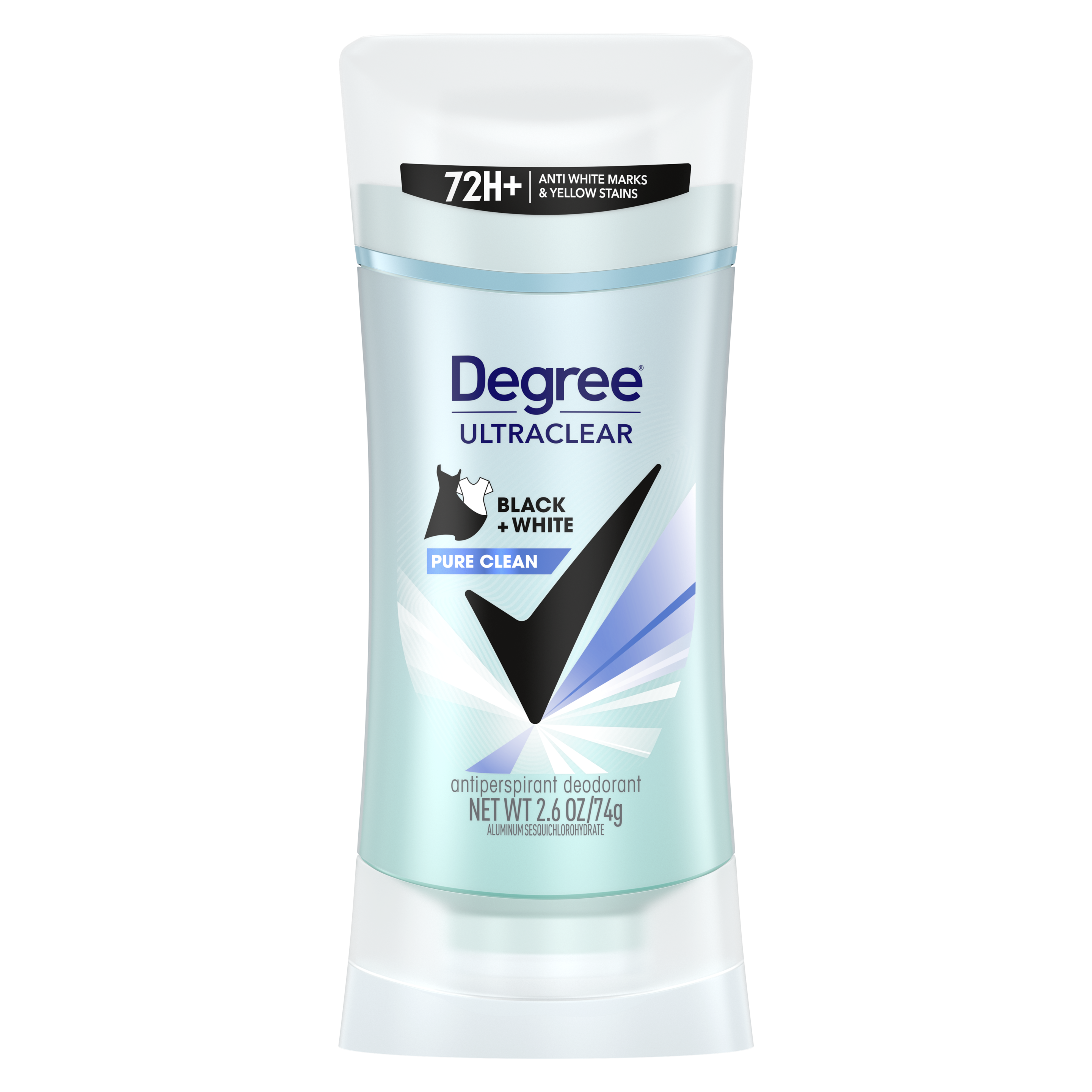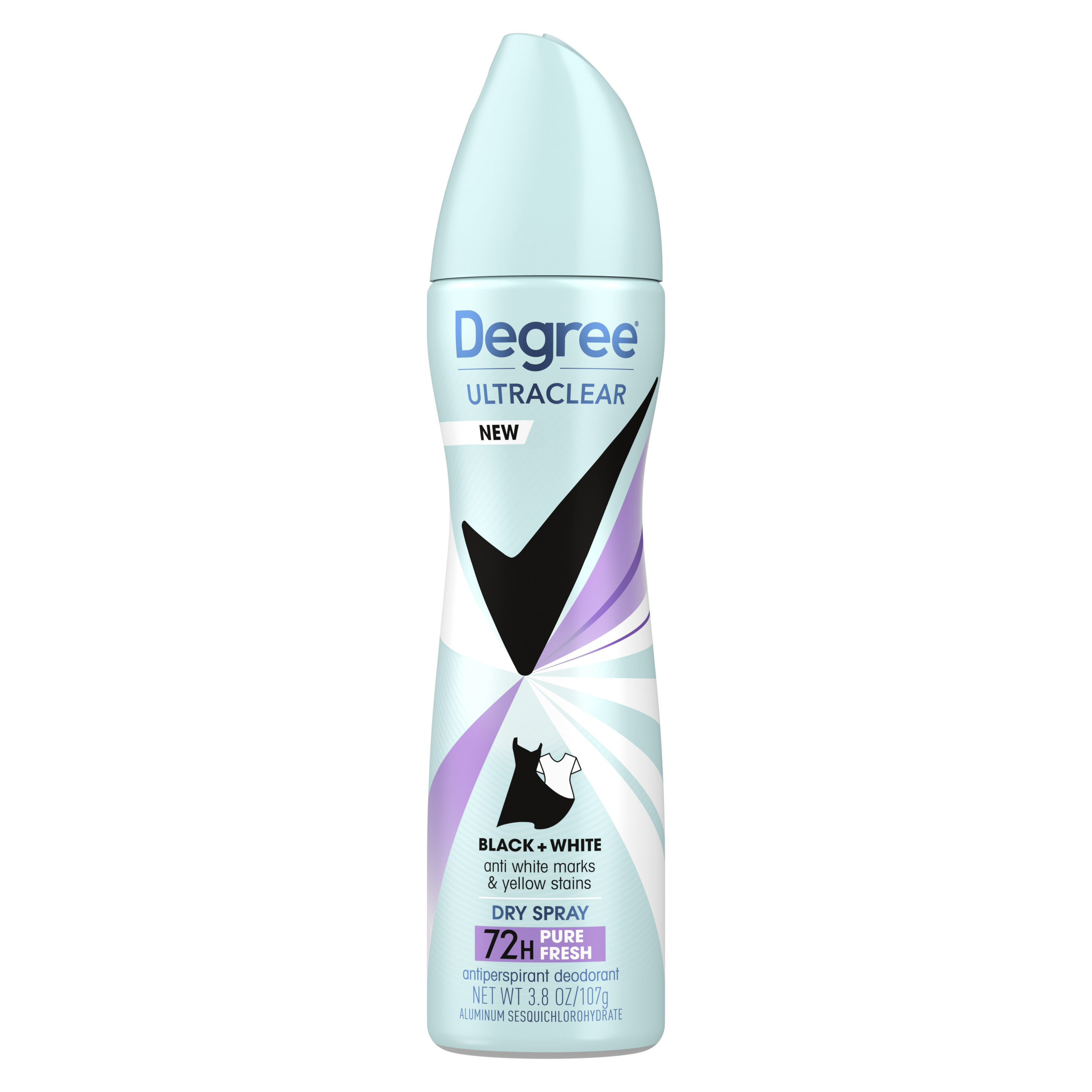EVERYTHING YOU NEED TO KNOW ABOUT MENOPAUSE BODY ODOR
Menopause body odor—is it a thing? Do we sweat and smell more as we transition through perimenopause and menopause? Sweat should never stop you from reaching your goals and living your life with confidence. Find out everything you need to know about perimenopause and menopause body odor and what you can do about it.
WHAT CAUSES BODY ODOR DURING MENOPAUSE AND PERIMENOPAUSE?
Your natural sense of smell can change as you transition into menopause. This may make you think you have body odor—even if you don’t.¹
But does menopause cause body odor? If you’re sweating more than usual—we're looking at you, hot flushes and night sweats—you may have more body odor than you’re used to. This is because your body sweats to cool down, and this excess sweating attracts odor-causing bacteria.
WHAT DOES MENOPAUSE BODY ODOR SMELL LIKE?
Body odor during menopause can smell a bit different than what you’re used to, and it’s mainly due to changes in your sweat composition and how bacteria interact with it.
There are two types of sweat glands in your body: apocrine and eccrine. Apocrine glands, found in areas like your armpits and genital region, produce a thicker, milkier sweat. This kind of sweat is a favorite for odor-causing bacteria, which can make body odor feel stronger during menopause.²
3 CAUSES OF MENOPAUSE BODY ODOR
1. Hot flushes and night sweats
When you talk about perimenopause and menopause, the phrases ‘hot flushes’ and ‘night sweats’ usually aren’t far behind. They’re caused by changes in your estrogen levels, the hormone that affects your body’s ability to regulate temperature.¹
A ‘flush’ itself can last anywhere from 30 seconds to 30 minutes. And around 75% of women will experience them during perimenopause and menopause. Night sweats are also very common during both perimenopause and menopause.³
2. Higher testosterone levels = low estrogen body odor
Lower estrogen levels can change the ratio of estrogen to testosterone in the body. Higher testosterone levels can increase the number of bacteria in sweat, causing a stronger smell.⁴
3. Stress and anxiety
Feelings of stress and anxiety can increase during perimenopause and menopause. The result? More sweat, and therefore potentially more B.O.
HOW TO TREAT MENOPAUSE BODY ODOR
To stay fresh during perimenopause and menopause, a few small lifestyle changes can make a big difference.
Wash or shower regularly
More than once a day, if it makes you feel more comfortable. Use an antibacterial soap for extra odor-eliminating action.
Use an antiperspirant every day
If you’re sweating a lot and concerned about body odor, try using a stronger product like Degree® 5 in 1 Protection Clinical Antiperspirant Deodorant. Not only does it deliver prescription-strength wetness protection, but it also gives you a refreshing fragrance boost and instant moisturization.
Tip: Apply your antiperspirant at night for better protection. Our sweat glands are less active at night, allowing the antiperspirant to work more effectively.
Wear loose-fitting clothes
Clothes that cling to your body will only make you sweatier. Instead, choose looser fits and go for natural fibers that breathe, like cotton underwear. Also, choose lighter fabrics for your nightwear.
Avoid sweaty triggers
Minimize alcohol, caffeine, spicy food and smoking. These can all make you sweat more and can even trigger a hot flush.
Keep moving
Don’t let a little sweat slow you down. Staying fit and exercising has been shown to help keep hot flushes and night sweats at bay.
Stay hydrated
Always carry a bottle of water with you, to keep cool and hydrated. It’s also useful to keep a bottle of cool water by your bedside table, too.
Keep your bedroom cool
If you’re experiencing night sweats, try these tips:
- Leave a window open
- Switch to lighter fabrics for your bedclothes
- Use layered bedding, so you can adjust them when you get too hot
- Place a frozen cold pack under your pillow, turning it over to get fresh coolness throughout the night
- Apply your deodorant before bed
Menopause FAQs
Does body odor change during menopause?
Yes, it can. As your hormones fluctuate during menopause, you might notice changes in your body odor. This happens because your body sweats more, and the types of bacteria on your skin can also change, which can affect how your sweat smells.
Does body odor increase with menopause?
Body odor can increase with menopause because of more frequent sweating episodes like hot flushes and night sweats.
What is the best deodorant for menopause?
During menopause, your body experiences hormonal shifts that can lead to increased sweating and stronger body odor. To combat this, you'll want powerful protection from your deodorant. Degree Summer Strength Clinical Antiperspirant Deodorant is an excellent choice, as it provides prescription-strength technology to help you stay dry and fresh throughout the day.
What is a home remedy for body odor during menopause?
Home remedies for body odor during menopause include regular washing with antibacterial soap, wearing loose-fitting clothes, staying hydrated, and avoiding triggers like spicy foods and caffeine.
Now you’ve uncovered the link between sweating, body odor and changing hormones during menopause, nothing can stop you. Take control of menopause body odor and get back to your best and most confident self.
References
1. Harvard Health Publishing. “Why has my natural scent changed during perimenopause?” 2023.
2. Cleveland Clinic. “Sweat”. 2024.
3. UCLA Health. “Hot flashes and more: New program helps patients through”, 2023.
4. Healthline. “Is There a Relationship Between Menopause and Body Odor?”. 2024.



